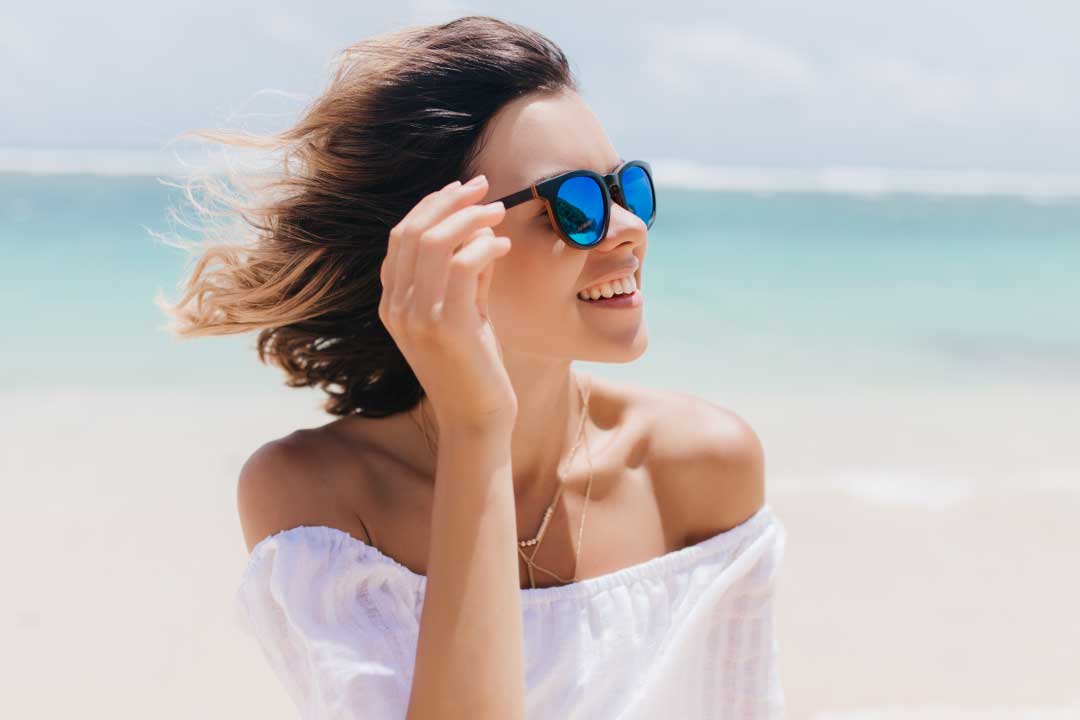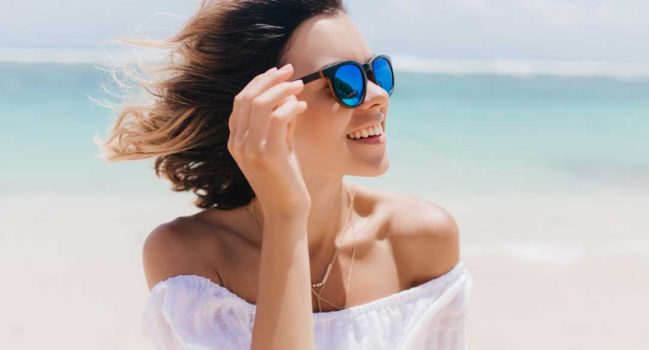
Summer eye health
Protecting your eyes from harmful UV rays is important all year around, especially here in Queensland, but even moreso in summer, when we're out having fun in the sun. In this post, put together by our head office team, we look at summer eye health, and how important it is to protect your eyes from the sun.
Sunglasses are an essential part of any wardrobe, particularly in summer.
Invented in China in the 12th century sunglasses moved into the mainstream during the ‘roaring 20s’ when actors wore them for eye protection from the bright klieg lights on movie sets and to shield their identity when out in public. Initially they were considered a fad but as they became more embedded into popular culture, sales of sunglasses soared.
Today, no wardrobe is complete without a pair of stylish sunnies.
Aside from cutting out glare and being fashionable, there are many other important reasons to wear sunglasses.
Preventing eye injuries and serious eye problems
Most of us understand the importance of wearing sunglasses to protect our eyes from harmful ultraviolet (UV) radiation but constant exposure to UV rays can cause some serious eye problems including cataracts, pterygiums, photokeratitis, macular degeneration, cancer of the conjunctiva and skin cancer of the eyelids.
In Australia, we are more prone than other countries to sun damage.
Eyelid protection
Because Australia is close to the equator, has a high proportion of clear blue skies and low pollution, we have the highest levels of UV radiation in the world and, as a result, one of the highest rates of skin cancer.
UV levels cannot be felt on your skin. They are not connected to temperature, can be dangerous on cold or hot days and are highest in the middle of the day from 10am and 2pm (or 11am and 3pm during daylight saving).
Whilst our eyes are sensitive to UV so too is the skin around our eyes, with the upper and lower eyelids vulnerable to skin cancers.
Wearing UV-protective wraparound sunglasses with large lenses can not only protect your eyes, but they will protect the skin around your eyes as well. They serve to block out light and glare from the side, as well as the front.
Selecting the right sunglasses
When you buy a pair of sunglasses in Australia, they need to have a mandatory classification labelled and tested according to the Australian/New Zealand standard AS/NZS 1067.1:2016.
Specifically, the best rating for sunglasses that provide eye protection from UV rays are rated with a lens category of 2 (medium protection) or 3 (highest protection).
The sunglasses safety standards are set out in the Consumer Goods (Sunglasses and Fashion Spectacles) Safety Standard legislation.
Sunglass Classifications
- Lens category 0: Fashion spectacles. These are not sunglasses and have a very low ability to reduce sun glare. They glasses provide little or no UV protection.
- Lens category 1: Fashion spectacles. These too are not sunglasses. They provide limited sun glare reduction and some UV protection, but it is minimal.
- Lens category 2: Sunglasses. This is the minimum eye protection from the sun. These sunglasses provide medium level sun glare reduction and good UV protection.
- Lens category 3: Sunglasses. These are the sunglasses you want to look out for. Level 3 sunglasses provide a high level of sun glare reduction and good level of UV protection.
- Lens category 4: Sunglasses. These are special-purpose sunglasses which provide a very high level of sun glare reduction and good UV protection. These glasses should not be worn while driving.
These standards not only refer to fashion sunglasses but to all framed or rimless sunglasses, clip-ons or slip-ons, children’s sunglasses, and light tint sunglasses.
As your optometrist, we have a very good understanding of what type of eyewear are best to suit your needs, so book in to come and see us, or pop by to check out our range of sunglasses.
Ready to book an appointment?
Online bookings available or call us on (07) 3463 0349.
This website does not provide medical advice. It is intended for informational purposes only. It is not a substitute for professional medical advice, diagnosis or treatment. Never ignore professional medical advice in seeking treatment. If you think you may have a medical emergency, immediately dial Triple 0 (000).

